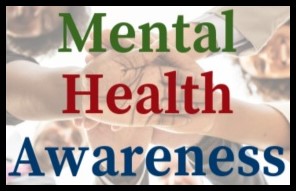
Not all injuries caused by trauma are visible. In this segment of our Mental Health Awareness series, we're going to discuss Post-Traumatic Stress Disorder, or PTSD.
According to the U.S. Department of Veterans Affairs' National Center for PTSD, opens a new window,"PTSD is a mental health problem that some people develop after experiencing or witnessing a life-threatening event, like combat, a natural disaster, a car accident, or sexual assault. It's normal to have upsetting memories, feel on edge, or have trouble sleeping after this type of event. If symptoms last more than a few months, it may be PTSD."
Those of us who live with PTSD experience a variety of emotions, including anxiety, stress, anger, guilt, and shame. We may also have insomnia, nightmares and flashbacks of the traumatic event, and self-destructive behaviors.
If you believe you may have post-traumatic stress disorder, please know that effective treatments do exist and recovery is attainable for those who seek treatment.
If you or someone you know is experiencing symptoms of PTSD, the following organizations offer help:
- Louisiana 2-1-1, opens a new window is "a single access point for every day needs and in times of crisis . . ."
- Vialink, opens a new window operates "a 24 hour contact center that serves the Metro New Orleans Area [including St. Tammany Parish] providing short-term crisis counseling and information & referrals."
- The National Suicide Prevention Lifeline, opens a new window at 1-800-273-8255, en español 1-888-628-9454, is available 24 hours a day, 7 days a week. The service is available to anyone and all calls are confidential. National Suicide Prevention's TTY number is 1-800-799-4889. National Suicide Prevention also has an online chat, opens a new window service.
- The Crisis Text Line, opens a new window: Text TALK to 741741. After sending this text message, you will receive an automated text asking about your crisis. Your response will help the team pair you with a counselor, and you will be connected to that counselor in minutes.
- The National Alliance on Mental Illness Helpline, opens a new window, 1-800-950-6264, is available Monday - Friday, 9 am - 5 pm.
- IMAlive, opens a new window is an online network that uses instant messaging to respond to people in crisis. Click the "Chat Now" button to begin a conversation with a volunteer who is trained and certified in crisis intervention.
If you or someone you know needs immediate or emergency help, please call 911, opens a new window.
Please note: This discussion of PTSD is intended for informational purposes and is not meant to take the place of meeting with a physician or therapist.
We have compiled the following list of St. Tammany Parish Library resources and external websites that have more information about post-traumatic stress disorder:
If you need help getting any of the items on the list, please contact your nearest St. Tammany Parish Library reference librarian, opens a new window.
If you're interested in reading other posts in the Mental Health Awareness, opens a new window series, look at the column to the left of this panel and select one of the links there.



Add a comment to: Mental Health Awareness: Post-Traumatic Stress Disorder (PTSD)